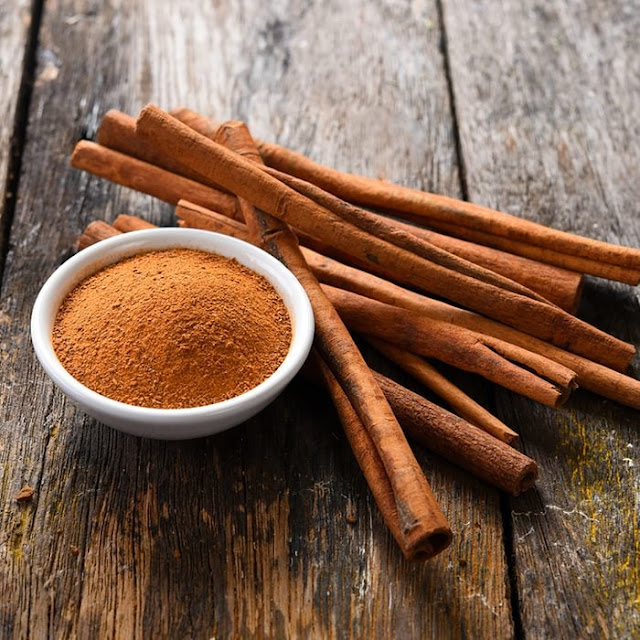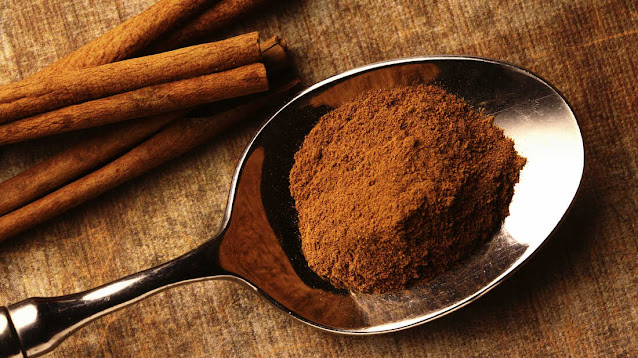What is Cinnamon?
Cinnamon is a spice that comes from the inner bark of several tree species from the genus Cinnamomum, which are native to Sri Lanka and other regions of South Asia. Cinnamon is widely used as a flavoring agent in both sweet and savory dishes, as well as in hot drinks like tea and coffee.
Cinnamon has a sweet and woody flavor and is often used in baking to add warmth and depth of flavor to dishes like apple pies, cinnamon rolls, and snickerdoodle cookies. It is also used in many savory dishes, such as curries and stews, to add a subtle spicy note. In addition to its culinary uses, cinnamon has been used for centuries in traditional medicine to treat a variety of ailments, and some research has suggested that it may have health benefits such as reducing inflammation and improving blood sugar control.
How can we use it for nutrition?
Cinnamon can be a great addition to a healthy and balanced diet, as it is not only a flavorful spice, but it also has potential health benefits. Here are some ways you can incorporate cinnamon into your diet:
Sprinkle cinnamon on oatmeal or yogurt: Cinnamon can add flavor to plain oatmeal or yogurt, making them more enjoyable to eat. Plus, the fiber and protein in these foods can help keep you feeling full and satisfied.
Use cinnamon in baking: Cinnamon can be added to many baked goods, such as muffins, pancakes, and bread, to add a warm and spicy flavor. Try substituting some of the sugar in your recipes with cinnamon for a healthier twist.
Add cinnamon to smoothies: A dash of cinnamon can add depth of flavor to a fruit or vegetable smoothie, without adding extra calories.
Use cinnamon in savory dishes: Cinnamon can also be used in savory dishes, such as roasted vegetables, chili, or curry, to add a subtle sweetness and depth of flavor.
Drink cinnamon tea: Cinnamon tea can be made by steeping cinnamon sticks in hot water. Drinking cinnamon tea can help you stay hydrated and also provide potential health benefits, such as helping to regulate blood sugar levels.
Remember that while cinnamon can provide some potential health benefits, it is important to maintain a balanced and varied diet to ensure that you are getting all of the nutrients your body needs.
Medicinal components
Cinnamon contains several compounds that have been studied for their potential medicinal properties. Here are some of the key components:
Cinnamaldehyde: This is the main component of cinnamon essential oil, and is responsible for its characteristic flavor and aroma. Cinnamaldehyde has been studied for its anti-inflammatory, antimicrobial, and antioxidant properties.
Cinnamic acid: This is a type of organic acid found in cinnamon that has been shown to have anti-inflammatory and antioxidant properties.
Eugenol: This is a compound found in cinnamon that has been shown to have analgesic (pain-relieving) and anti-inflammatory properties.
Polyphenols: Cinnamon is rich in polyphenols, which are plant compounds that have been shown to have antioxidant and anti-inflammatory properties.
Proanthocyanidins: These are a type of flavonoid found in cinnamon that has been shown to have antioxidant and anti-inflammatory properties, as well as potential benefits for heart health.
Overall, while cinnamon is not a cure-all, it contains several potentially beneficial compounds that may have health-promoting effects. However, more research is needed to fully understand how these compounds work and how they can be used in medicine.
Medicinal Benefits in Alternative Medicines
Cinnamon has been used in alternative medicine for centuries and is believed to have a range of potential health benefits. Some of the most commonly cited uses of cinnamon in alternative medicine include:
Blood sugar control: Cinnamon has been shown to improve insulin sensitivity and glucose uptake in cells, which may help to regulate blood sugar levels. This is why cinnamon is often recommended as a natural remedy for type 2 diabetes.
Anti-inflammatory effects: Cinnamon contains compounds that have been shown to have anti-inflammatory effects, which may help to reduce inflammation and prevent chronic diseases.
Anti-microbial effects: Cinnamon has been shown to have anti-microbial effects against a range of bacteria, fungi, and viruses. This may make it useful in treating infections and preventing the spread of disease.
Digestive aid: Cinnamon has traditionally been used as a digestive aid, as it may help to reduce bloating, gas, and indigestion.
Heart health: Some studies have suggested that cinnamon may have potential benefits for heart health, including improving cholesterol and triglyceride levels and reducing blood pressure.
It's important to note that while some of these potential benefits of cinnamon have been supported by scientific research, more studies are needed to fully understand how cinnamon works and how it can be used as a treatment for various health conditions. Additionally, cinnamon should not be used as a replacement for conventional medical treatment, and you should always speak with your healthcare provider before using cinnamon or any other natural remedies.
What is it good for?
Cinnamon has been studied for its potential health benefits in many different diseases and conditions. Here are some examples of conditions for which cinnamon may be beneficial:
Type 2 diabetes: Cinnamon has been shown to improve insulin sensitivity and glucose uptake in cells, which may help to regulate blood sugar levels in people with type 2 diabetes.
Alzheimer's disease: Some studies have suggested that cinnamon may help to prevent or slow the progression of Alzheimer's disease, potentially by reducing inflammation and oxidative stress in the brain.
Inflammatory bowel disease (IBD): Cinnamon has been shown to have anti-inflammatory effects, which may make it useful in managing the symptoms of IBD.
Infections: Cinnamon has been shown to have anti-microbial effects against a range of bacteria, fungi, and viruses, which may make it useful in treating infections such as candida overgrowth or H. pylori infection.
Cardiovascular disease: Some studies have suggested that cinnamon may have potential benefits for heart health, including improving cholesterol and triglyceride levels and reducing blood pressure.
It's important to note that while cinnamon may have potential benefits for these conditions, more research is needed to fully understand how it works and how it can be used as a treatment. Additionally, cinnamon should not be used as a replacement for conventional medical treatment, and you should always speak with your healthcare provider before using cinnamon or any other natural remedies.
Summary of Cinnamon Benefits
Cinnamon is a spice that has been studied for its potential health benefits for many years. Here is a summary of some of the potential benefits of cinnamon:
Blood sugar control: Cinnamon may help to regulate blood sugar levels, making it potentially useful for people with type 2 diabetes.
Anti-inflammatory effects: Cinnamon contains compounds that have been shown to have anti-inflammatory effects, which may help to reduce inflammation and prevent chronic diseases.
Anti-microbial effects: Cinnamon has been shown to have anti-microbial effects against a range of bacteria, fungi, and viruses, which may make it useful in treating infections.
Digestive aid: Cinnamon has traditionally been used as a digestive aid, as it may help to reduce bloating, gas, and indigestion.
Heart health: Some studies have suggested that cinnamon may have potential benefits for heart health, including improving cholesterol and triglyceride levels and reducing blood pressure.
While cinnamon may have potential benefits for these and other health conditions, more research is needed to fully understand its effects and how it can be used as a treatment. Additionally, cinnamon should not be used as a replacement for conventional medical treatment, and you should always speak with your healthcare provider before using cinnamon or any other natural remedies.











